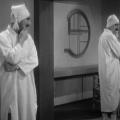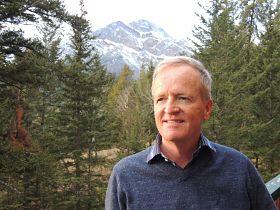283. Jack Zupko on John Buridan
Peter speaks to Jack Zupko about John Buridan's secular and parsimonious approach to philosophy.
Themes:
• J. Zupko, “John Buridan on Abstraction and Universal Cognition,” in Knowledge and the Sciences in Medieval Philosophy, ed. S. Knuuttila et al. (Helsinki: 1990), vol.2, 392-403.
• J. Zupko, “How Are Souls Related to Bodies? A Study of John Buridan,” The Review of Metaphysics 46.3 (1993): 575-601.
• J. Zupko, “Buridan and Skepticism,” Journal of the History of Philosophy 31 (1993), 191-221.
• J. Zupko, “Freedom of Choice in Buridan’s Moral Psychology,” Mediaeval Studies 57 (1995), 75-99.
• J. Zupko, John Buridan: Portrait of a Fourteenth-Century Arts Master (Notre Dame: 2003).
• J. Zupko, “John Buridan and the Origins of Secular Philosophical Culture,” in ‘Quia inter doctores est magna dissensio.’ Les débats de philosophie naturelle à Paris au XIVe siècle, ed. S. Caroti and J. Celeyrette (Firenze: 2004), 33-48.
• J. Zupko, “On Buridan’s Alleged Alexandrianism: Heterodoxy and Natural Philosophy in Fourteenth-Century Paris,” Vivarium 42 (2004), 42-57.
• J. Zupko, “Universal Thinking as Process: The Metaphysics of Change and Identity in John Buridan’s Intellectio Theory,” in Later Medieval Metaphysics: Ontology, Language, and Logic, ed. R. Keele and C. Bolyard (New York: 2013), 137-58.
• J. Zupko, “On the Several Senses of ‘Intentio’ in Buridan,” in Intentionality, Cognition, and Mental Representation in Medieval Philosophy, ed. G. Klima (New York: Fordham University Press, 2015): 251-72.







Comments
Buridan and theology
In the mediaeval university was natural theology a part of the arts faculty or the theology faculty?
Would Buridan have commented on Aristotle's arguments for the existence of God or treatment of God as first mover or final cause?
In reply to Buridan and theology by Xavier
Buridan and theology
Yes, the key work here would be the Physics: there is a commentary on it by Buridan and in book 8 we get an argument for God as the prime mover. That work was studied in the Arts Faculties, hence Buridan's engagement with it. Of course both this discussion and the one in the Metaphysics would certainly have been of interest to the Theology faculty too though.
Oblique Syllogisms
Buridan is very intriguing. I had not heard of him until quite recently. One source I was looking at says that he did a very rigorous and complete study of the "oblique syllogism." This is a syllogism where a transitive verb is used instead of "is" or "is contained in." Example: Archimedes is drawing a circle. A circle is a plane figure. Therefore, Archimedes is drawing a plane figure. To try to handle a syllogism like this in the Aristotelian framework would be very cumbersome, if not impracticable.
Oblique, relational syllogisms are quite interesting to me, and I think it's unfortunate that they don't get much coverage in introductory textbooks of logic. If you'll forgive the shameless plug, I did extend my graphical method to them, and I'd be grateful for any feedback or thoughts. If you do know of any relatively elementary treatments of relational syllogisms, please let me know.
Thank you for your consideration.
In reply to Oblique Syllogisms by Fr. John Rickert
Relational syllogisms
Well this is far from elementary but Khaled el-Rouyaheb has a brilliant book tracing the history of the relational syllogism across many centuries of Arabic logic.
Add new comment